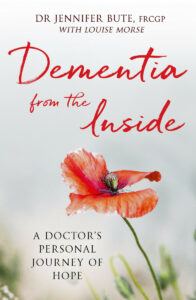 We have a new ‘word of the year’: Collins’ dictionary has come up with ‘permacrisis’, defining an extended period of instability and insecurity, especially one resulting from a series of catastrophic events’. Referring to current events, the Collins blog adds wryly, ‘much more of this and we might have forgotten what stability and security ever felt like.’
We have a new ‘word of the year’: Collins’ dictionary has come up with ‘permacrisis’, defining an extended period of instability and insecurity, especially one resulting from a series of catastrophic events’. Referring to current events, the Collins blog adds wryly, ‘much more of this and we might have forgotten what stability and security ever felt like.’
But we know that from the Garden of Eden onwards our fallen world has rarely known security and stability. The Covid Pandemic has produced a rise in mental illness, particularly among older people. After the forced separation and the many kindnesses in that crisis many of us imagined that afterwards there would be a coming together and a greater sense of community. Instead it’s being riven by divisions and war. So what’s the secret of those who hold steady and exude a quiet joy even when their lives are challenging in the extreme?
Among my Christmas cards was one from William, who is the sort of person you’d like to be when you grow up. He was a medical missionary in India for many years and his wife a teacher. Now in their 80s they are both frail and he knows that his beloved wife will soon be with the Lord. He writes that, with bent spine and wobbly legs he gets about with a wheelie walker and a little dog, adding that ‘It is a sign of our situation and status that our children gave us pyjamas for Christmas.’ William is one of my encouragers, and by hand he wrote, ‘thank you for your inspiring writing ministry. May God bless you and use you for many a year!’ And he gives three key Scripture verses headed, ‘Hope, Love, Joy, Courage and Peace.’
The first is psalm 90:12,14. ‘Teach us to number our days that we may gain a heart of wisdom. Satisfy us in the morning with your unfailing love, that we may sing for joy and be glad all our days.’ The second is Deuteronomy 31:6: ‘be strong and courageous. Do not be afraid or terrified for the Lord your God goes with you; He will never leave you.’ Lastly, Romans 15:13, ‘may the God of hope fill you with all joy and peace as you trust in Him, so that you may overflow with hope by the power of the Holy Spirit.’ Notice that ‘joy’ is mentioned twice.
There’s also my friend Barbara, (name changed) now in her 80s looking after her 90 year old husband David (name changed) who now has dementia. For most of his life he has been a pastor and evangelist and has helped Christians in over thirty countries. She was a teacher and very able helper, as well as a Christian counsellor and Supervisor. Now she’s frail, with several health issues. Most Friday mornings, when David is at the Day Centre, I collect her and we pootle around the shops in town ‘being normal’ or have lunch in a nearby luxurious garden centre. They live in an apartment complex (not a retirement place) and she’s made it her business to get to know everybody, holding tea parties and the like. From neighbours I’ve met it’s clear that she and David are a popular couple. Last Friday when I called in to collect her she was making coffee for her neighbour Janice, who she’s agreed to hold a spare key for. Barbara sees that God has given her a mission field in the complex. With all her frailty and a husband with dementia, she is living out her purpose. Her favourite Scripture is Matthew 5:16, which says, ‘In the same way, let your light shine before others, that they may see your good deeds and glorify your Father in heaven.’
 You have probably heard of my friend Dr Jennifer Bute. Perhaps you’ve read the book we wrote together, ‘Dementia from the Inside: a Doctor’s Personal Journey of Hope.’ (It’s a very uplifting book and I recommend it!) Jennifer was a senior doctor and a Fellow of the Royal College before being diagnosed with dementia some 16 years ago and she’s now in her 70s. Each time we meet I’m struck by her joy. It gives her energy and reflects her closeness to God. At the start of the book she says, ‘When I was asked about how my dementia affected my relationship with God my first reaction was to say it was the other way around. Knowing the Lord and being kept by Him affects my life with dementia more than words can say, and probably more than I realise. It is knowing Him in my life that gives me joy. I believe that as cognition becomes limited the person becomes more aware of spiritual things, possibly because inhibitions or social assumptions are removed. My dementia has greatly deepened my relationship with God; having dementia has enriched my life.’
You have probably heard of my friend Dr Jennifer Bute. Perhaps you’ve read the book we wrote together, ‘Dementia from the Inside: a Doctor’s Personal Journey of Hope.’ (It’s a very uplifting book and I recommend it!) Jennifer was a senior doctor and a Fellow of the Royal College before being diagnosed with dementia some 16 years ago and she’s now in her 70s. Each time we meet I’m struck by her joy. It gives her energy and reflects her closeness to God. At the start of the book she says, ‘When I was asked about how my dementia affected my relationship with God my first reaction was to say it was the other way around. Knowing the Lord and being kept by Him affects my life with dementia more than words can say, and probably more than I realise. It is knowing Him in my life that gives me joy. I believe that as cognition becomes limited the person becomes more aware of spiritual things, possibly because inhibitions or social assumptions are removed. My dementia has greatly deepened my relationship with God; having dementia has enriched my life.’
You probably know people who live with joy, and there are many more I could write about. Recently a geriatric psychiatrist wrote an article for Harvard Health Publishing. The title was, ‘How can you find joy (or at least peace) during difficult times? She mentions practical things that we can do, such as regular aerobic exercise that releases benign neurotransmitters that promote positive feelings. And exercise does help. But our source of joy comes from our relationship with Jesus, who is not an ephemeral idea, but a powerful reality. Psalm 16 promises that ‘in His presence is fullness of joy.’ He ‘speaks’ to us and guides us. He has planned our lives for a purpose: Ephesians 2:10 and psalm 129 describe how He is in control and has plotted our pathway to Him in Heaven. He’s also given us a Design Manual for life, the Bible.
Until we examine it we believe that we are not responsible for the thoughts that come into our heads. But Philippians 4:8 makes it clear that we do have a choice about what thoughts to dwell on. Choosing joy is a choice – an a wise one!















